
Find Help
More Items From Ergsy search
-

What role does the Information Commissioner’s Office (ICO) play in these disputes?
Relevance: 100%
-

Will I meet with a prison officer?
Relevance: 47%
-

What is the Attorney General’s Office?
Relevance: 41%
-

What is the role of local government in boundary disputes?
Relevance: 39%
-

Can I visit a USCIS office to inquire about my immigration status?
Relevance: 37%
-
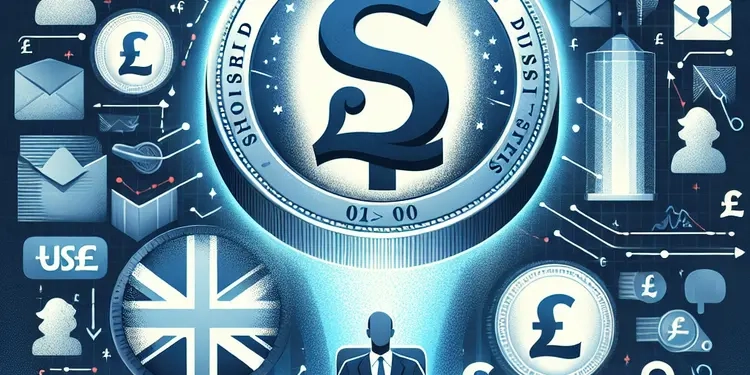
Shareholder Disputes
Relevance: 37%
-
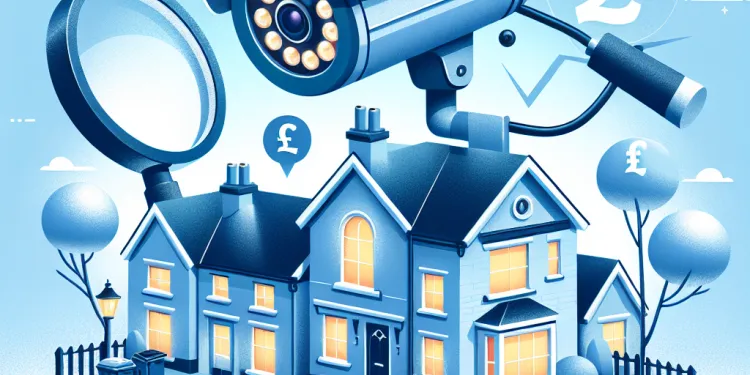
Can my neighbour use footage from their security camera as evidence in disputes?
Relevance: 36%
-

Company Director Disputes
Relevance: 34%
-
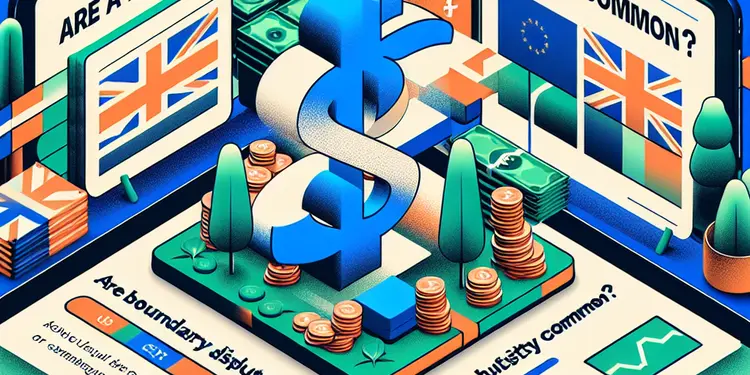
Are boundary disputes common?
Relevance: 34%
-

What is a boundary dispute?
Relevance: 34%
-
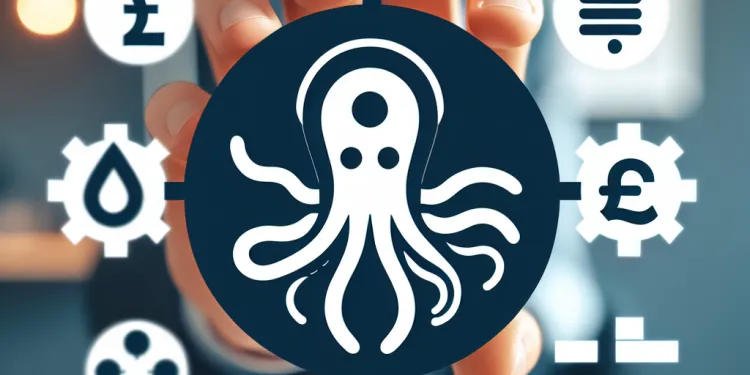
Can I dispute the compensation amount offered by Octopus Energy?
Relevance: 34%
-

Do neighbours need to inform me if their cameras record my property?
Relevance: 34%
-
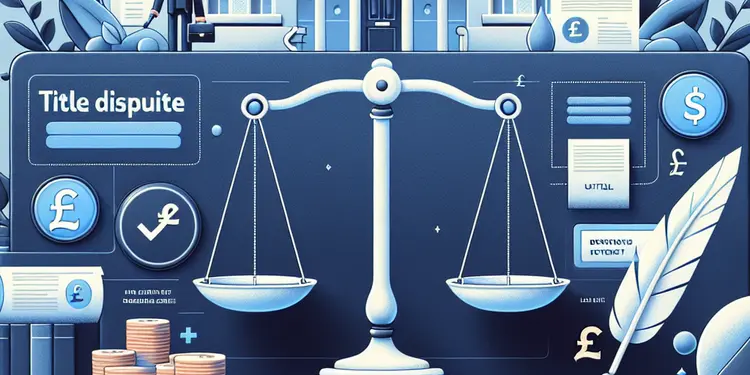
What is a title dispute?
Relevance: 33%
-

How can a boundary dispute be resolved?
Relevance: 33%
-

How are disputes between landlords and tenants handled?
Relevance: 33%
-

What are common causes of shareholder disputes?
Relevance: 32%
-
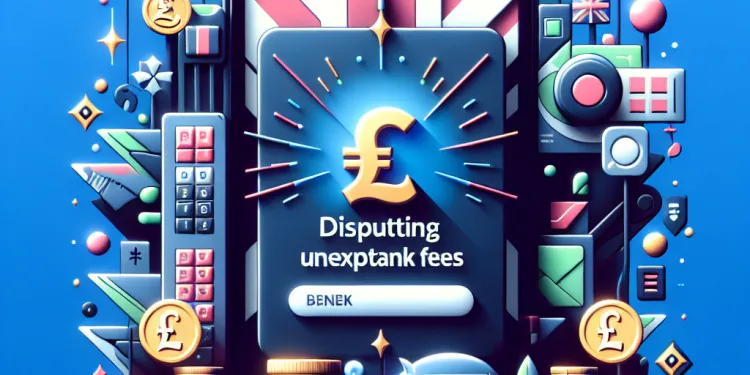
Can customers dispute unexpected banking fees?
Relevance: 32%
-

What is fiduciary duty and how does it relate to director disputes?
Relevance: 32%
-
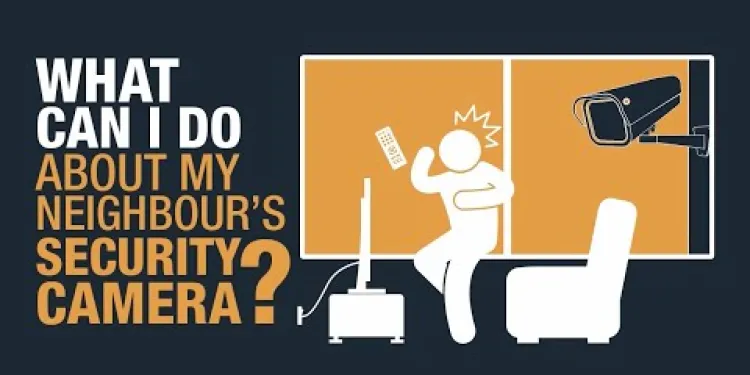
What can I do about my neighbour's security camera?
Relevance: 32%
-
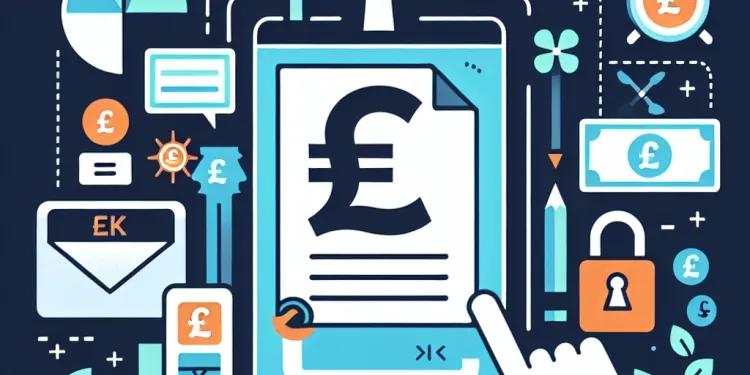
Can I contact Ofgem directly for a compensation dispute with Octopus Energy?
Relevance: 32%
-
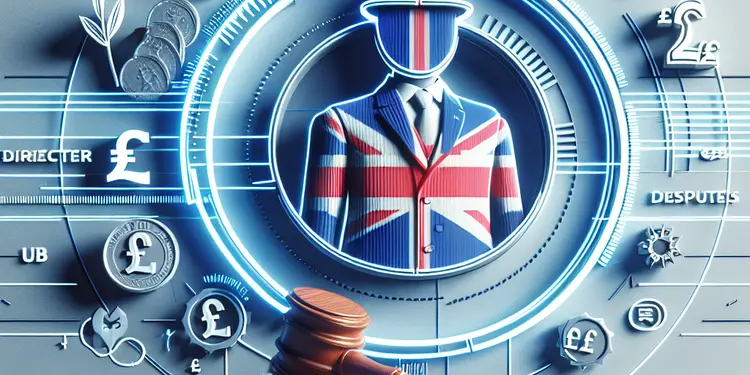
What are common causes of director disputes?
Relevance: 31%
-

What is the role of the Office for Product Safety and Standards in a recall?
Relevance: 31%
-

What is the role of corporate governance in preventing disputes?
Relevance: 31%
-
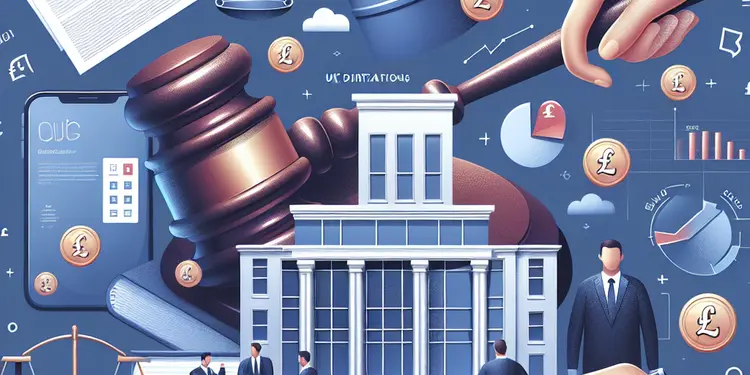
What legal obligations do directors have during a dispute?
Relevance: 31%
-

Can mediation be a solution for director disputes?
Relevance: 31%
-

What is the role of a mediator in a shareholder dispute?
Relevance: 31%
-
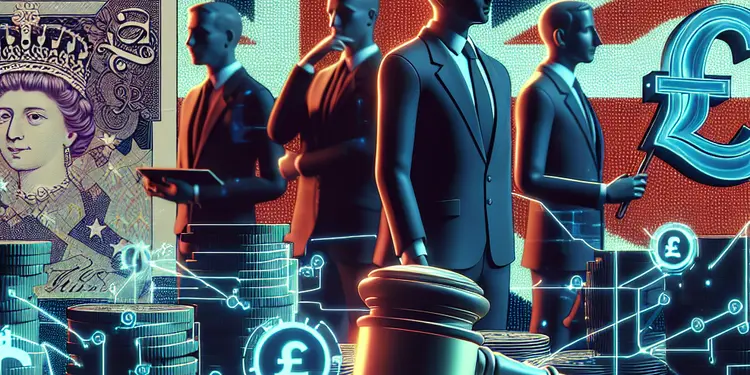
Is arbitration a viable option for resolving director disputes?
Relevance: 31%
-

What steps can be taken to prevent shareholder disputes?
Relevance: 31%
-

Handling Inheritance Disputes Legally
Relevance: 31%
-

Can boundary disputes be insured against?
Relevance: 30%
-

Can boundary disputes affect property values?
Relevance: 30%
-
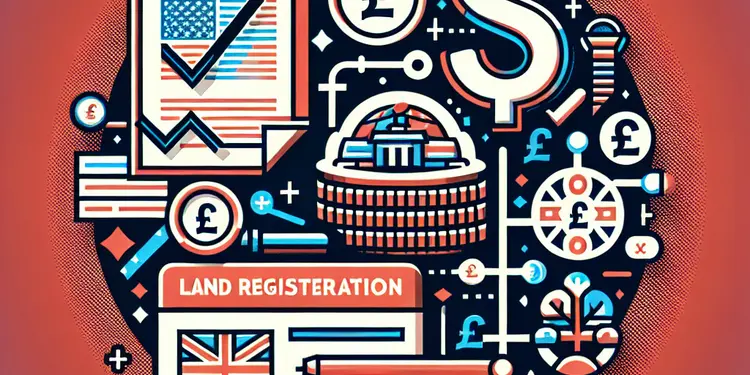
Is mediation available for land registration disputes?
Relevance: 30%
-

What are the warning signs of a potential director dispute?
Relevance: 30%
-

What role do property deeds play in boundary disputes?
Relevance: 30%
-

How can valuation disputes in buyouts be resolved?
Relevance: 30%
-

How long do boundary disputes typically take to resolve?
Relevance: 30%
-

What types of disputes are involved in property litigation?
Relevance: 30%
-
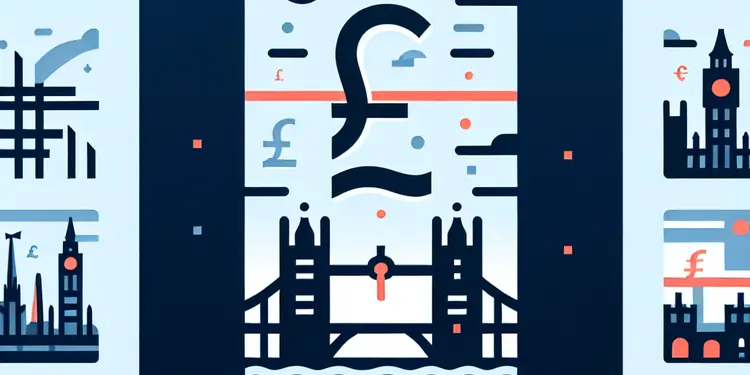
What is encroachment in terms of boundary disputes?
Relevance: 30%
-

Can director disputes lead to company liquidation?
Relevance: 29%
-
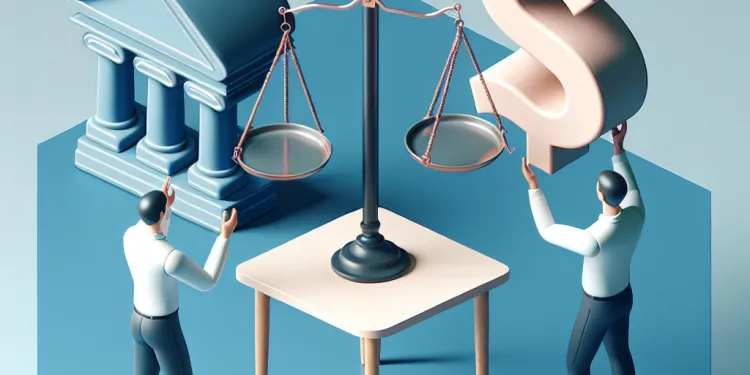
How can disputes over banking fees be resolved effectively?
Relevance: 29%
Overview of the Information Commissioner's Office (ICO)
The Information Commissioner's Office (ICO) is an independent authority in the United Kingdom, established to uphold information rights in the public interest, promoting openness by public bodies and data privacy for individuals. The ICO's key responsibilities include enforcing and overseeing legislation related to data protection and freedom of information, specifically the UK General Data Protection Regulation (UK GDPR) and the Data Protection Act 2018.
Resolving Disputes
One of the ICO's essential roles is to act as a mediator and regulatory authority in disputes related to data protection and information rights. When individuals or organizations believe their data protection rights have been infringed, they can lodge a complaint with the ICO. The office provides guidance and mediation to resolve conflicts and grievances related to data misuse, breaches, and the mishandling of personal information.
Enforcement and Guidance
The ICO has the authority to investigate complaints and concerns raised by individuals or organizations. During investigations, the office examines whether there have been breaches of data protection laws and advises on corrective measures. The ICO can issue enforcement notices, requiring organizations to stop or change how they process personal data. Additionally, the office provides guidance to organizations to help them improve their practices and comply with relevant data protection laws, thus minimizing future disputes.
Issuing Penalties
In cases where data protection laws are found to have been severely breached, the ICO has the power to impose monetary penalties. These fines can be substantial, acting as a deterrent against non-compliance and encouraging organizations to adhere to data protection standards. The ICO assesses the severity of breaches and tailors penalties accordingly, taking into account factors such as the nature and duration of the infringement and the measures taken by the organization to mitigate harm.
Public Awareness and Education
The ICO plays a significant educational role by raising awareness among the public and organizations about their data rights and responsibilities. By disseminating information and offering resources, the ICO empowers individuals to understand and exercise their information rights while helping organizations understand their obligations under data protection laws. Public awareness initiatives help prevent disputes from arising by fostering a culture of transparency and accountability.
Working with Other Authorities
The ICO collaborates with other national and international regulatory authorities to address cross-border data protection issues and disputes. This cooperation is vital in a globalized digital economy where data often transcends national boundaries. By working together, the ICO and its counterparts ensure consistent and effective regulation, safeguarding data protection standards and resolving disputes at an international level.
Conclusion
The Information Commissioner's Office plays a crucial role in resolving disputes related to data protection in the UK. By investigating complaints, enforcing the law, issuing penalties, and providing guidance and education, the ICO ensures that data protection standards are upheld, protecting individuals’ rights and fostering trust in digital and informational practices.
What is the Information Commissioner's Office (ICO)?
The Information Commissioner's Office, or ICO, is a special independent group in the UK. They help protect information rights. This means they make sure that public bodies are open and that people's data is kept private. Their main jobs include making sure people and companies follow rules about data protection and sharing information.
Helping to Solve Problems
The ICO helps solve problems between people and companies about data protection. If someone thinks their data rights have been broken, they can tell the ICO. The ICO then helps to make things right. They give advice and help fix issues like when data is misused or personal information is not handled well.
Checking and Giving Advice
The ICO can check if companies are breaking data protection rules. They look at the problems and tell companies how to fix them. The ICO can also tell companies to change how they use personal data. They help companies do better and follow the rules so there are fewer problems in the future.
Giving Penalties
If a company breaks data protection rules in a big way, the ICO can give them a fine, which is a type of money penalty. These fines can be large to make sure companies follow the rules. The ICO decides how serious the problem is and how much the fine should be, looking at what the company did to stop the problem from getting worse.
Teaching and Sharing Information
The ICO teaches people and companies about their data rights and duties. They share information and resources to help everyone know what to do with personal data. This helps stop problems before they start, by encouraging everyone to be open and responsible with data.
Working with Other Groups
The ICO works with other regulators from around the world. This is important because data often moves between countries. By working together, they make sure the rules are the same everywhere, which helps keep data safe and solves problems that cross borders.
Summary
The ICO is very important for solving data problems in the UK. They do this by checking complaints, making sure the law is followed, giving penalties, and offering guidance and teaching. This helps keep people's data protected and builds trust in how we use and share information online.
Frequently Asked Questions
What is the Information Commissioner's Office (ICO)?
The Information Commissioner's Office (ICO) is the UK's independent authority that upholds information rights and promotes data privacy for individuals.
How does the ICO help resolve data protection disputes?
The ICO investigates complaints from the public and businesses, and it enforces data protection regulations by taking appropriate action against organizations that fail to comply.
Can the ICO impose penalties on organizations?
Yes, the ICO has the power to impose fines and sanctions on organizations that breach data protection laws such as the GDPR and the Data Protection Act.
What type of disputes does the ICO handle?
The ICO deals with disputes related to data protection, freedom of information, Privacy and Electronic Communications Regulations, and the Environmental Information Regulations.
Does the ICO provide guidance on data protection issues?
Yes, the ICO provides advice and guidance to help organizations comply with data protection legislation and improve their information management practices.
How can individuals report a data protection concern to the ICO?
Individuals can report their data protection concerns to the ICO online via their website, by telephone, or by writing to them.
Does the ICO intervene in disputes between two private parties?
The ICO typically does not intervene in private disputes unrelated to data protection obligations unless there is a significant public interest.
What is the first step an individual should take before contacting the ICO?
Individuals are encouraged to first address their data protection concerns directly with the organization in question before approaching the ICO.
How long does the ICO take to resolve a complaint?
The time taken to resolve a complaint varies depending on complexity. However, the ICO aims to address cases promptly and efficiently.
What happens if an organization fails to comply with an ICO enforcement notice?
If an organization fails to comply with an ICO enforcement notice, it may face further legal action, including fines or prosecution.
Can the ICO mediate disputes between data subjects and organizations?
While the ICO does not formally mediate disputes, it facilitates dialogue between parties to ensure compliance and may provide recommendations.
Do organizations have the right to appeal ICO decisions?
Yes, organizations can appeal against ICO enforcement actions to the Information Tribunal or higher courts.
Are all businesses required to register with the ICO?
Most businesses that process personal data must register with the ICO and pay a data protection fee unless exempt.
Does the ICO oversee data breaches?
Yes, organizations are required to report certain types of data breaches to the ICO, which assesses the incidents and enforces action where necessary.
What powers does the ICO have under the GDPR?
Under the GDPR, the ICO can conduct audits, issue fines, and order organizations to take specific actions to comply with data protection laws.
How does the ICO ensure transparency in its decisions?
The ICO publishes its decisions, enforcement actions, and guidance documents on its website to maintain transparency and accountability.
What should an organization do if it disagrees with an ICO decision?
Organizations should first seek clarification from the ICO and, if still unresolved, they may proceed by appealing to the Information Tribunal.
Why is the ICO important for data protection in the UK?
The ICO plays a critical role in safeguarding personal data rights, ensuring compliance with data protection laws, and maintaining public trust in data privacy.
Does the ICO offer training or resources for understanding data protection?
Yes, the ICO provides training materials, guides, and resources to help organizations and individuals understand their obligations under data protection laws.
How can someone learn about current ICO investigations or actions?
The ICO regularly updates its website with news, enforcement actions, and details about ongoing investigations for public awareness.
What does the Information Commissioner's Office (ICO) do?
The Information Commissioner's Office, or ICO, is a group that helps keep personal information safe. They make sure companies and people follow rules about how to use and protect data. This is important to keep everyone's information private and secure.
If you need help understanding, you can use tools like picture cards or listen to someone read the text to you. These can help make things clearer.
The Information Commissioner's Office (ICO) is a group in the UK. It helps keep your information safe and makes sure people follow the rules about data privacy.
How does the ICO help with data problems?
The ICO stands for Information Commissioner's Office. It helps with data problems. Here’s how:
- If someone has a problem with their data, they can talk to the ICO.
- The ICO listens to both sides of the problem.
- They can help fix data problems.
If you need help understanding, you can:
- Ask someone you trust to explain.
- Use pictures or videos about data problems.
- Use simple apps or websites about data safety.
The ICO looks into complaints from people and businesses. It makes sure that data protection rules are followed. If a company breaks these rules, the ICO can take action against them.
Can the ICO give penalties to organizations?
Yes, the ICO can give fines to companies that break data protection rules like the GDPR and the Data Protection Act.
What problems does the ICO help with?
The ICO helps when there are problems about keeping personal information safe, sharing it if needed, rules for email and messages, and sharing info about the environment.
Can the ICO help with data protection questions?
Yes, the ICO can help you with data protection. They give advice and tips on how to look after personal information safely. If you have questions about data protection, you can ask the ICO for help. You can also visit their website for more information.
If you find reading hard, you can:
- Ask someone you trust to read it with you.
- Try using a tool that reads text out loud.
- Take your time to read a little bit at a time.
Yes, the ICO helps people and businesses follow data protection rules. They give advice and tips on how to take care of information better.
How can people tell the ICO about a data protection problem?
If you think there is a problem with how your data is being used, you can tell the ICO.
The ICO is a group that helps keep your data safe.
You can do this by:
- Going to their website.
- Calling them on the phone.
- Writing them a letter.
If you need help, ask a grown-up or a friend to help you with this.
You can tell the ICO if you are worried about how someone is using your data. You can do this online on their website, by calling them on the phone, or by writing a letter to them.
Does the ICO help with arguments between two people or groups?
The ICO usually does not get involved in personal fights unless it has to do with data privacy and is important for the public.
What should you do before talking to the ICO?
Before you call or write to the ICO, try these steps:
- Talk to the person or company you have a problem with.
- Explain what went wrong and what you want them to do.
- Give them some time to fix the issue.
Tools that can help you:
- A friend or family member can help you explain your problem.
- Use a pen and paper to write down what went wrong.
If you have a problem with how a company is using your data, talk to them first. It’s a good idea to try and fix it with them before asking the ICO for help.
How long does it take for the ICO to sort out a complaint?
The ICO is a group that helps fix problems with how your information is used.
If you tell the ICO about a problem, it might take a while to sort it out. Every problem is different, so the time can change.
Usually, it takes a few weeks or months.
If you want help, ask a friend or use a tool that helps with reading, like a screen reader.
How long it takes to fix a complaint can change. It depends on how tricky the problem is. But the ICO tries to solve problems quickly and well.
What happens if a group does not follow ICO rules?
If a group breaks the rules set by the ICO, they might get into more trouble. This could mean paying money as a punishment or going to court.
Can the ICO help solve arguments about personal data?
If you have a problem with how an organization is using your personal data, you might feel upset or confused.
You can ask the ICO (Information Commissioner's Office) for help. They are a group that knows a lot about data and can give you advice.
The ICO can explain your rights and tell you what to do next. They can't always fix the problem, but they can help you find a solution.
If you are having trouble reading or understanding this, you can ask someone you trust to help you.
The ICO helps people talk to each other if they have a disagreement. They do not solve the problem themselves, but they give advice on how to follow the rules.
Can organizations say they disagree with ICO choices?
Yes, organizations can ask a special group called the Information Tribunal to look at what the ICO has decided. They can also go to a higher court. This is called an appeal.
Do all businesses have to sign up with the ICO?
Some businesses need to tell the ICO they are using personal information, like names and addresses. This is called registering.
But not all businesses have to register. It depends on what they do with information.
If a business does not know, they can ask for help. They can look at the ICO website or call them.
Using a big calendar on the wall can help businesses keep track of things they need to do, like registering.
Pictograms or drawings can make it easier to understand what words mean.
Most businesses that use personal data need to sign up with the ICO and pay a fee for data protection, unless they don't have to.
Does the ICO Watch Over Data Problems?
Yes, if a company loses or leaks important information, they must tell the ICO. The ICO checks what happened and decides if anything needs to be done about it.
What Can the ICO Do Under GDPR?
The ICO is an important group that helps keep our data safe. Here is what they can do:
- Check Rules: Make sure everyone follows data rules.
- Investigate Problems: Look into issues when rules are broken.
- Give Warnings: Warn people or companies if they are not following the rules.
- Make Decisions: Decide what happens if rules are not followed.
- Fine Companies: Ask companies to pay money if they break the rules.
Tools that might help:
- Simple Posters: Use pictures and short sentences to remember the rules.
- Online Videos: Watch videos that explain GDPR in an easy way.
- Ask for Help: If you do not understand, ask someone you trust to explain.
The GDPR is a set of rules that help keep your personal information safe. The ICO is a group that makes sure these rules are followed. They can do three things to help:
- Check to see if rules are being followed.
- Give fines if the rules are broken.
- Tell companies what they need to do to fix any problems.
Here are some tips that might help you read:
- Break the text into smaller parts.
- Ask someone to read it with you.
- Use a ruler or your finger to follow along the lines.
- Try reading out loud.
How does the ICO show it is being clear about its decisions?
The ICO shares what it decides, actions it takes, and helpful guides on its website. This helps everyone understand what the ICO does and why.
What to Do if Your Group Doesn’t Agree with an ICO Decision
If your group thinks the ICO made a mistake, here are some easy steps to follow:
1. Talk to ICO: You can ask ICO why they made the choice. It is good to ask questions if you don’t understand.
2. Appeal the Decision: If talking doesn’t help, your group can ask ICO to look at the decision again.
3. Get Help: Sometimes, it’s nice to have someone help you. You can find a friend or use tools like a computer to help.
Understanding these steps can help your group feel more at ease.
First, if you have questions, ask the ICO for help. If the problem isn’t fixed, you can ask the Information Tribunal to look at it again.
Why Does the ICO Matter for Keeping Data Safe in the UK?
The ICO is like a special helper that makes sure your information is safe. They make the rules about how people use and keep your data. This is important so no one can misuse your personal details.
Tools to help:
- Use simple words to describe what data is, like 'your information'.
- Draw pictures to show how the ICO protects your personal details.
- Use short sentences or bullet points to explain how it works.
The ICO is a group that helps keep our personal information safe. They make sure people follow the rules about protecting data and help everyone trust that their private information is looked after.
You can also use tools like text-to-speech or picture dictionaries to make reading easier.
Can the ICO help me learn about keeping information safe?
Do you want to know how to keep information safe? The ICO can help. They have lessons and tools to teach you. You can use pictures and videos to make it easier. Just ask them for help!
Yes, the ICO has training materials, guides, and resources. These help people and groups learn about data protection laws and what they need to do.
How can you find out what the ICO is doing?
If you want to know what the ICO (Information Commissioner's Office) is working on, here are some simple steps:
- Visit the ICO website. They often have news and updates.
- Look for a section called "News" or "Updates." This will tell you about their work.
- You can also sign up for their newsletter. They will send you emails with new information.
- If you need help reading, ask someone to read the website with you.
- Use tools like text-to-speech or a reading app to help understand the website better.
The ICO often puts new things on their website. They share news, tell people about rules that aren't being followed, and talk about investigations. This helps everyone know what's happening.
Useful Links
Have you found an error, or do you have a link or some information you would like to share? Please let us know using the form below.
-->
This website offers general information and is not a substitute for professional advice.
Always seek guidance from qualified professionals.
If you have any medical concerns or need urgent help, contact a healthcare professional or emergency services immediately.
Some of this content was generated with AI assistance. We’ve done our best to keep it accurate, helpful, and human-friendly.
- Ergsy carfully checks the information in the videos we provide here.
- Videos shown by Youtube after a video has completed, have NOT been reviewed by ERGSY.
- To view, click the arrow in centre of video.
- Most of the videos you find here will have subtitles and/or closed captions available.
- You may need to turn these on, and choose your preferred language.
- Go to the video you'd like to watch.
- If closed captions (CC) are available, settings will be visible on the bottom right of the video player.
- To turn on Captions, click settings .
- To turn off Captions, click settings again.
More Items From Ergsy search
-

What role does the Information Commissioner’s Office (ICO) play in these disputes?
Relevance: 100%
-

Will I meet with a prison officer?
Relevance: 47%
-

What is the Attorney General’s Office?
Relevance: 41%
-

What is the role of local government in boundary disputes?
Relevance: 39%
-

Can I visit a USCIS office to inquire about my immigration status?
Relevance: 37%
-

Shareholder Disputes
Relevance: 37%
-

Can my neighbour use footage from their security camera as evidence in disputes?
Relevance: 36%
-

Company Director Disputes
Relevance: 34%
-

Are boundary disputes common?
Relevance: 34%
-

What is a boundary dispute?
Relevance: 34%
-

Can I dispute the compensation amount offered by Octopus Energy?
Relevance: 34%
-

Do neighbours need to inform me if their cameras record my property?
Relevance: 34%
-

What is a title dispute?
Relevance: 33%
-

How can a boundary dispute be resolved?
Relevance: 33%
-

How are disputes between landlords and tenants handled?
Relevance: 33%
-

What are common causes of shareholder disputes?
Relevance: 32%
-

Can customers dispute unexpected banking fees?
Relevance: 32%
-

What is fiduciary duty and how does it relate to director disputes?
Relevance: 32%
-

What can I do about my neighbour's security camera?
Relevance: 32%
-

Can I contact Ofgem directly for a compensation dispute with Octopus Energy?
Relevance: 32%
-

What are common causes of director disputes?
Relevance: 31%
-

What is the role of the Office for Product Safety and Standards in a recall?
Relevance: 31%
-

What is the role of corporate governance in preventing disputes?
Relevance: 31%
-

What legal obligations do directors have during a dispute?
Relevance: 31%
-

Can mediation be a solution for director disputes?
Relevance: 31%
-

What is the role of a mediator in a shareholder dispute?
Relevance: 31%
-

Is arbitration a viable option for resolving director disputes?
Relevance: 31%
-

What steps can be taken to prevent shareholder disputes?
Relevance: 31%
-

Handling Inheritance Disputes Legally
Relevance: 31%
-

Can boundary disputes be insured against?
Relevance: 30%
-

Can boundary disputes affect property values?
Relevance: 30%
-

Is mediation available for land registration disputes?
Relevance: 30%
-

What are the warning signs of a potential director dispute?
Relevance: 30%
-

What role do property deeds play in boundary disputes?
Relevance: 30%
-

How can valuation disputes in buyouts be resolved?
Relevance: 30%
-

How long do boundary disputes typically take to resolve?
Relevance: 30%
-

What types of disputes are involved in property litigation?
Relevance: 30%
-

What is encroachment in terms of boundary disputes?
Relevance: 30%
-

Can director disputes lead to company liquidation?
Relevance: 29%
-

How can disputes over banking fees be resolved effectively?
Relevance: 29%


